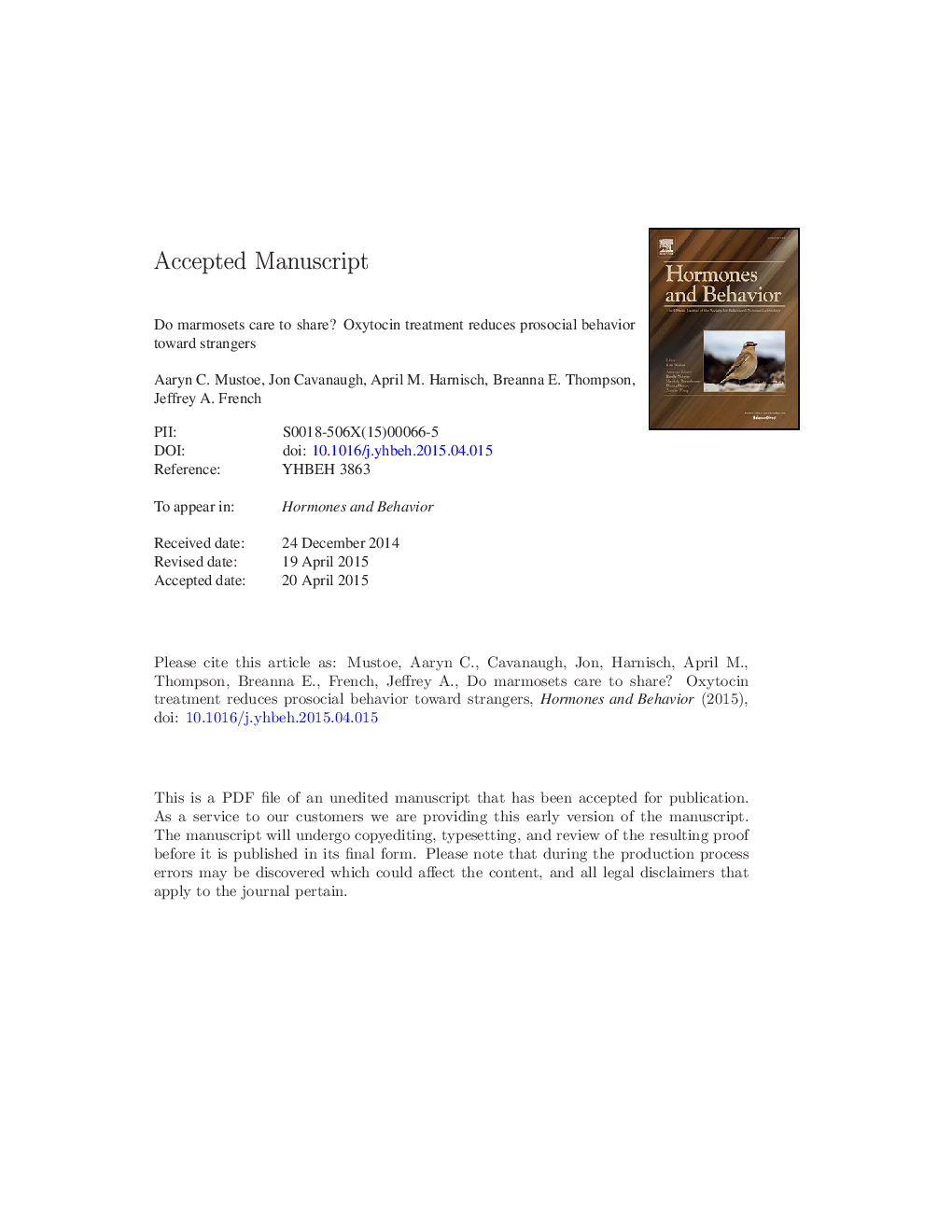| Article ID | Journal | Published Year | Pages | File Type |
|---|---|---|---|---|
| 6794959 | Hormones and Behavior | 2015 | 34 Pages |
Abstract
Cooperatively-breeding and socially-monogamous primates, like marmosets and humans, exhibit high levels of social tolerance and prosociality toward others. Oxytocin (OXT) generally facilitates prosocial behavior, but there is growing recognition that OXT modulation of prosocial behavior is shaped by the context of social interactions and by other motivational states such as arousal or anxiety. To determine whether prosociality varies based on social context, we evaluated whether marmoset donors (Callithrix penicillata) preferentially rewarded pairmates versus opposite-sex strangers in a prosocial food-sharing task. To examine potential links among OXT, stress systems, and prosociality, we evaluated whether pretrial cortisol levels in marmosets altered the impact of OXT on prosocial responses. Marmosets exhibited spontaneous prosociality toward others, but they did so preferentially toward strangers compared to their pairmates. When donor marmosets were treated with marmoset-specific Pro8-OXT, they exhibited reduced prosociality toward strangers compared to marmosets treated with saline or consensus-mammalian Leu8-OXT. When pretrial cortisol levels were lower, marmosets exhibited higher prosociality toward strangers. These findings demonstrate that while marmosets show spontaneous prosocial responses toward others, they do so preferentially toward opposite-sex strangers. Cooperative breeding may be associated with the expression of prosociality, but the existence of a pair-bond between marmoset partners appears to be neither necessary nor sufficient for the expression of spontaneous prosocial responses. Furthermore, high prosociality toward strangers is significantly reduced in marmosets treated with Pro8-OXT, suggesting that OXT does not universally enhance prosociality, but, rather OXT modulation of prosocial behavior varies depending on social context.
Related Topics
Life Sciences
Biochemistry, Genetics and Molecular Biology
Endocrinology
Authors
Aaryn C. Mustoe, Jon Cavanaugh, April M. Harnisch, Breanna E. Thompson, Jeffrey A. French,
